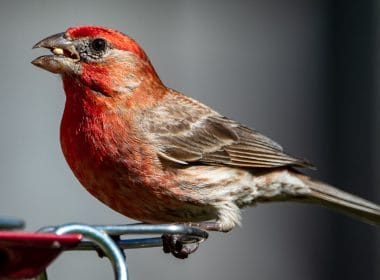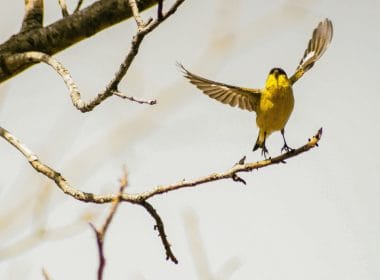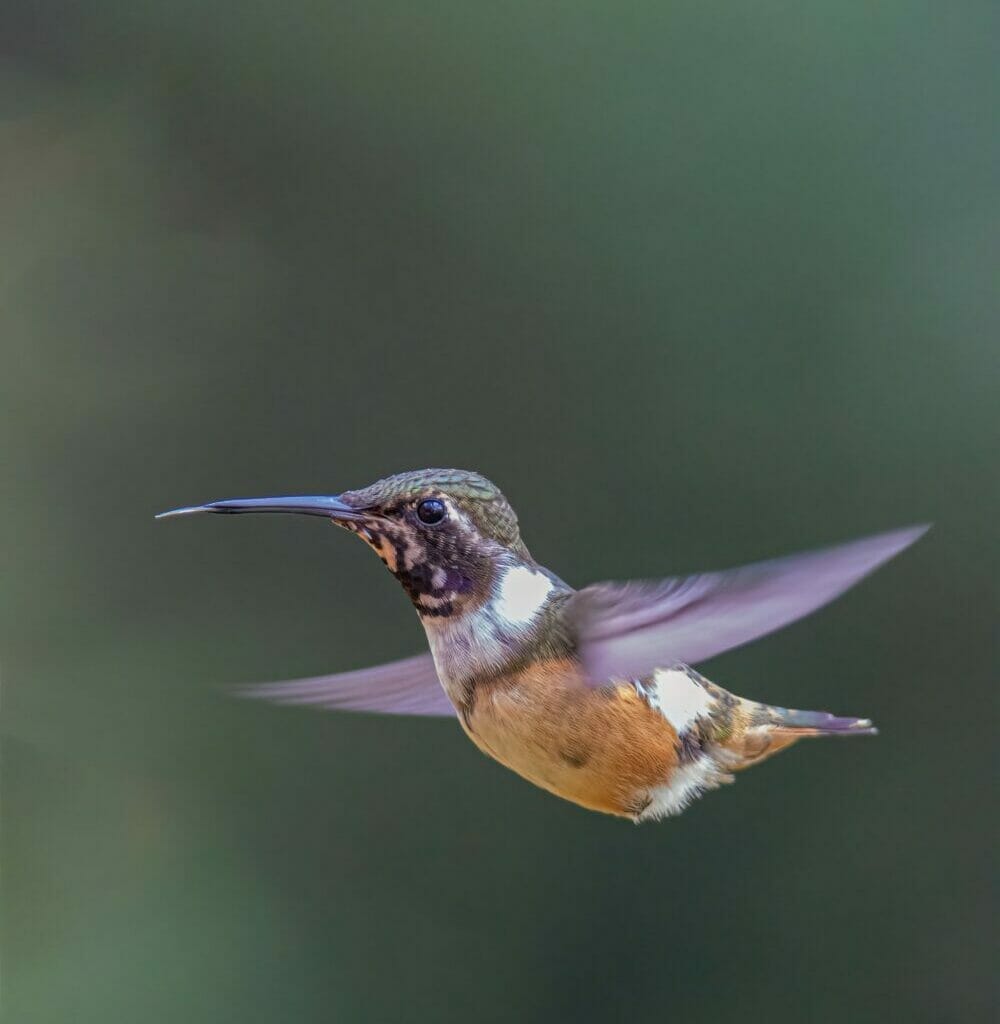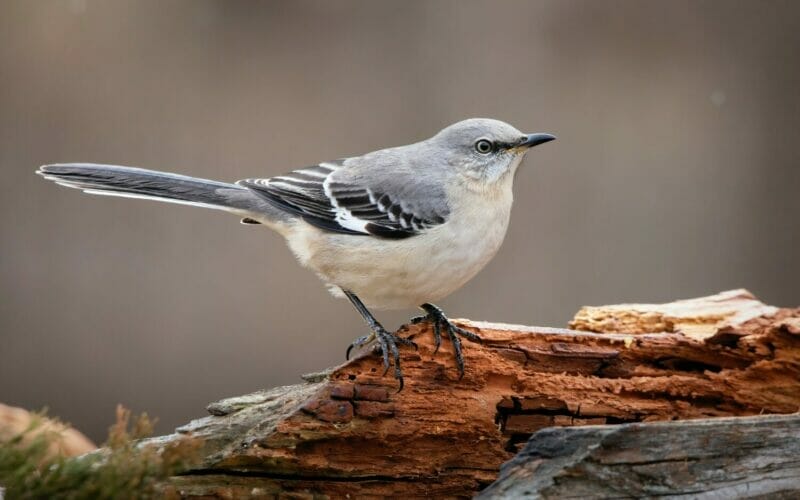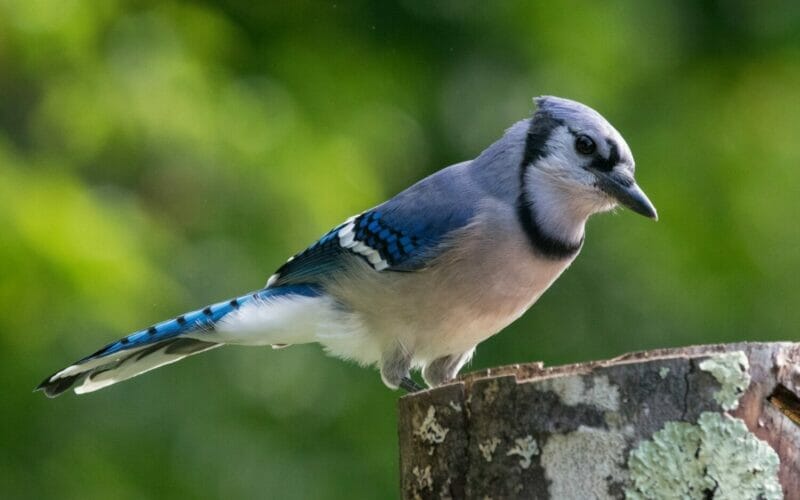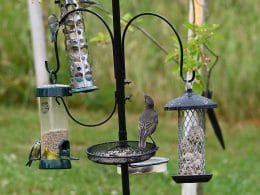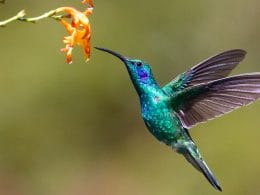Hummingbirds and bees can both be found in many parts of the United States, and both of these species love the nectar from flowers and sugary feeders. Unfortunately, if the bee population grows too large at a hummingbird feeder, it can become overcrowded and dangerous for the birds.
Knowing how to keep bees far away from hummingbird feeders is an important part of keeping these beautiful birds safe, and there are a few simple steps you can take to make sure that your feeder remains bee-free.
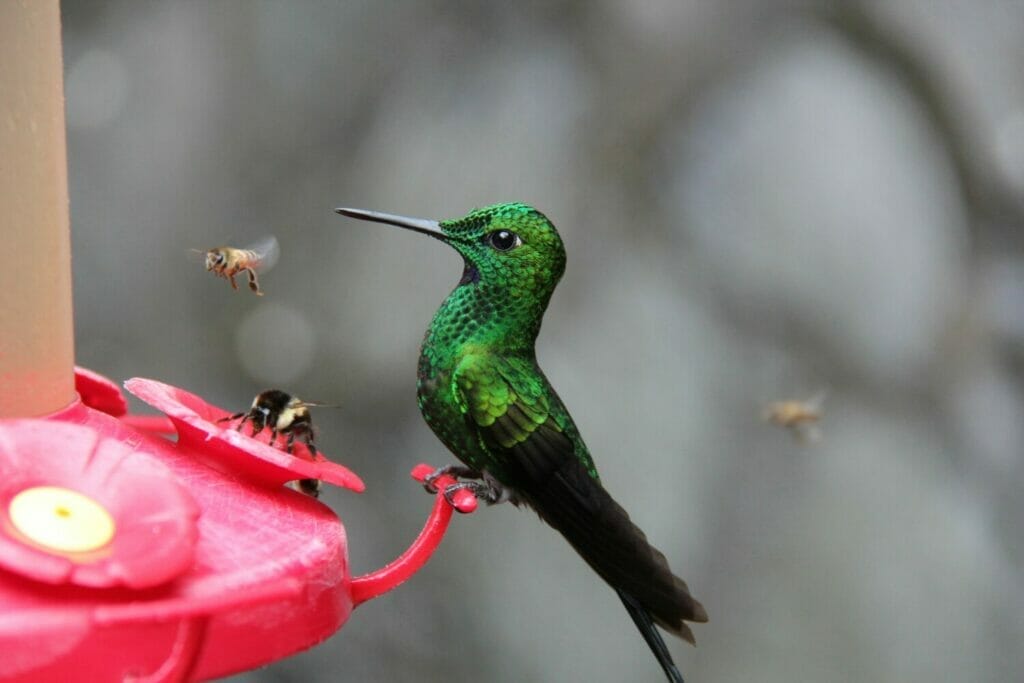
Why are bees attracted to Hummingbird feeders?
First things first: you put this feeder out to nourish and attract hummingbirds, so why are the bees even getting involved in the first place? Essentially, bees are greedy – they are attracted to hummingbird feeders because of the sweet nectar that is contained within them.
The sugary liquid is a great source of energy for bees, and they will flock to the feeder in search of a tasty treat. Additionally, bees are drawn to bright colors – this is what helps them find the most nutritious, delicious flowers – and so if your hummingbird feeder has a bright red or yellow hue, it may be even more attractive to the bees.
Keeping bees away from Hummingbird feeders
There are a few options available when it comes to keeping bees away from your hummingbird feeders, and these include:
1. Choose the right feeder
The first step in keeping bees away from hummingbird feeders is to choose the right type of feeder. Opt for a model with small feeding ports and perches, as these will be too small for bees to access.
Additionally, look for a feeder with a wide base that will make it difficult for bees to land, such as a saucer-style feeder.
This will help to keep the bees away, as the design is perfect for the long, curved tongues of hummingbirds, but much more tricky for insects to access and enjoy the treats.
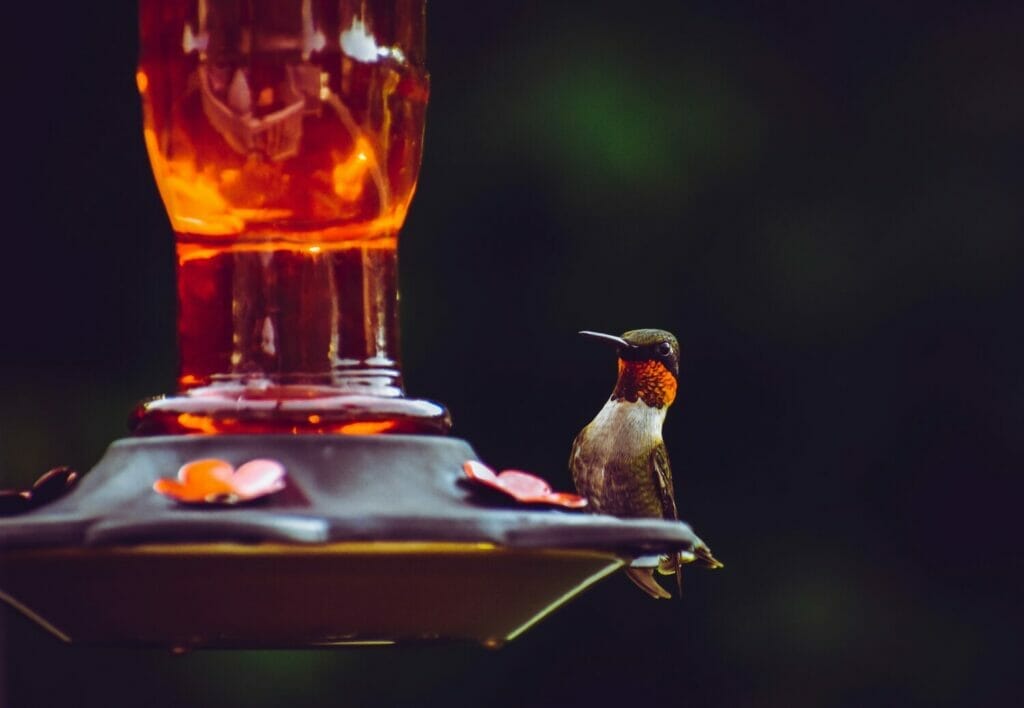
2. Hang the feeder away from flowers
Bees are attracted to flowers, so it’s important to hang your hummingbird feeder away from other blooms. This small change will help to keep the bees away from your feeder, as they won’t be able to smell the sweet nectar and will instead focus on the flowers.
3. Add bee deterrents
If you’re still having trouble keeping bees away from your hummingbird feeder, there are a few deterrents you can add to help keep them at bay.
Adding a few drops of peppermint oil to the nectar can help to repel bees, as they don’t like the smell.
You can also hang a few strips of aluminum foil near the feeder, as the reflection will scare them away.
4. Check there are no leaks in your feeder
Bees are attracted to the sweet smell of nectar, so if your feeder is leaking, they’ll be more likely to come and investigate. Check your feeder regularly for any signs of leaks or damage, and make sure to repair them as soon as possible.
This will help to keep the bees away and ensure that your hummingbirds have a safe place to feed.
5. Clean your feeder regularly
It is important to keep your hummingbird feeder clean and free of any residue or mold. Bees are attracted to the sweet smell of nectar, so if your feeder is dirty or has old nectar in it, they’ll be more likely to come and investigate.
Cleaning your feeder regularly will help to keep the bees away and ensure that your hummingbirds have a safe place to feed.
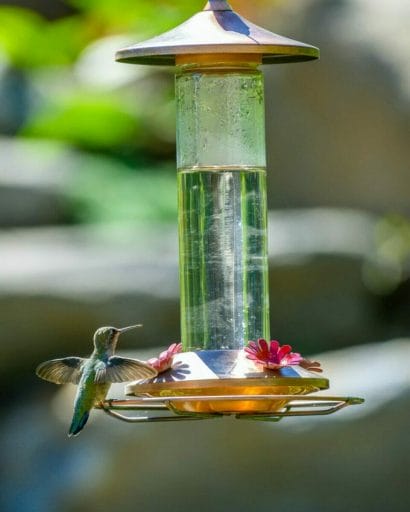
6. Use bee traps
If you’re still having trouble keeping bees away from your hummingbird feeder, you can try using bee traps. These traps are designed to lure bees in with a sweet scent and then trap them inside, preventing them from accessing the feeder.
They can then be taken elsewhere and released safely. Be sure to place the traps far away from the feeder so that they don’t attract more bees.
7. Divert the bees attention
Finally, you can try diverting the bees’ attention away from your hummingbird feeder. Planting flowers that are rich in nectar and pollen will help to attract the bees away from the feeder and give them a better source of food.
Additionally, adding a bee bath near the feeder will also help to keep them away, as they’ll be drawn to the water instead.
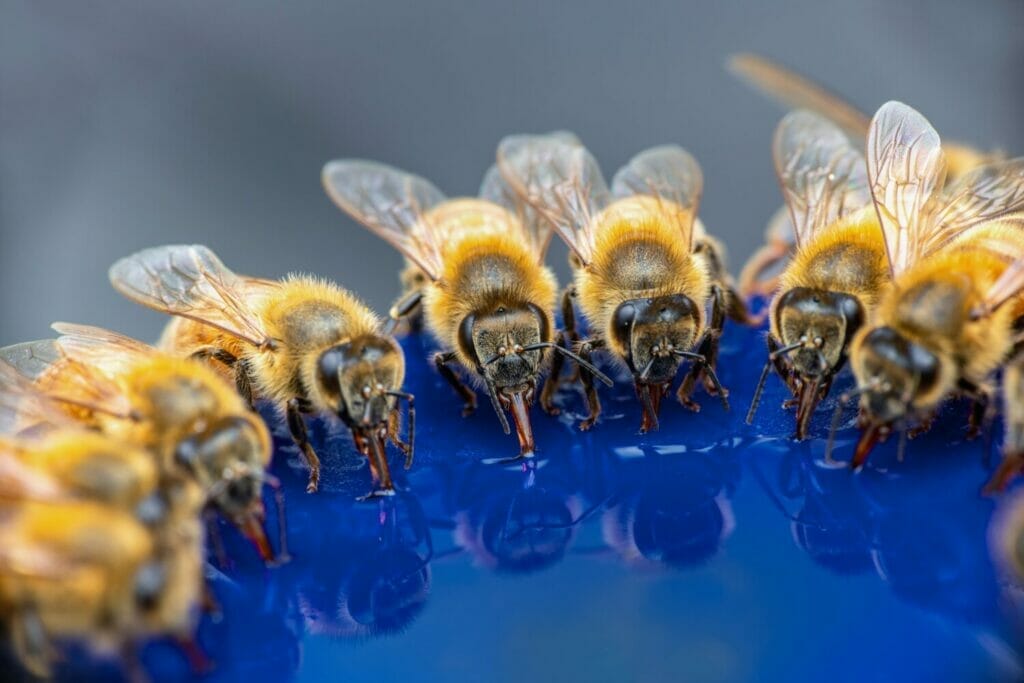
Some of the best flowers to plant for bees include:
- Lavender
- Sunflowers
- Marigolds
- Zinnias
- Cosmos
- Asters
8. Opt for a red feeder
Hummingbirds are attracted to the color red, so opting for a red feeder can help to keep the bees away. Bees are not attracted to the color red, preferring yellow, so they’ll be less likely to come and investigate your feeder if it is a different color.
Additionally, hummingbirds will be more likely to find your feeder if it is bright and colorful.
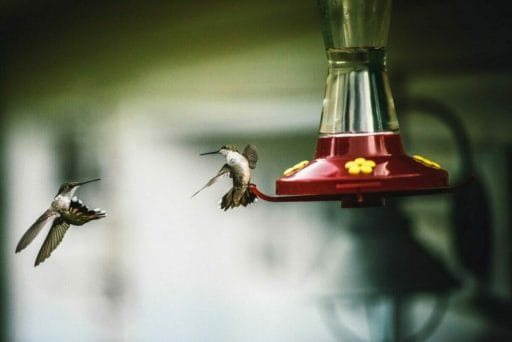
9. Hang your feeder in the shade
Bees are attracted to sunlight, so hanging your hummingbird feeder in the shade can help to keep them away. Additionally, this will also help to keep the nectar from spoiling too quickly, as it won’t be exposed to direct sunlight.
If you don’t have any trees or other structures that provide shade, you can try using an umbrella or other type of cover to keep the feeder in the shade.
Final Thoughts
Keeping bees away from your hummingbird feeder can be a challenge, but with the right deterrents and techniques, it is possible.
Try using peppermint oil, aluminum foil, bee traps, or planting flowers to help keep them away. Additionally, opt for a red feeder and hang it in the shade to further deter the bees.
With these tips in mind, you should have no trouble keeping your hummingbirds safe and your feeder bee-free.
Planning a bee-friendly garden will also help to distract the bees elsewhere, and has the added bonus of supporting the insects, allowing you to create a happy, harmonious garden for all inhabitants.
FAQ
No, birds and hummingbirds co-exist safely. However, if there are too many bees in an area, the hummingbirds will just avoid it.
Humans. Habitat loss and ecosystem changes caused by human interference is the biggest threat to the survival of hummingbirds.
Insects do form part of the hummingbird’s diet but they do not eat bees.
No, it is the hummingbird that is more aggressive, especially when it comes to feeding. However, if there are too many bees around, the feeder becomes less attractive to the hummingbird and they will simple go elsewhere.
